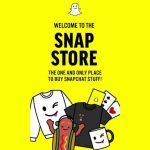These 5 Startups Used Snapchat To Boost Their Brand (And So Can You)
When Snapchat burst onto the scene in 2011, it became a sensation among teenagers who loved the idea of sending messages that disappear. In a social media landscape dominated by platforms like Facebook and Twitter that leave a permanent record of your activity, the impermanence of Snapchat’s images and videos was a breath of fresh air.
Five years on, it’s clear that Snapchat wasn’t a gimmick. The company was recently valued at $16 billion and now has more than 100 million daily users who spend an average of half an hour on the app every day. And it’s not just teens who love Snapchat. Although the service still skews toward the millennial set—60% of all 13- to 34-year-old smartphone users are on the platform—14% of Snapchat’s user base is over 35.
All of this results in 10 billion video views every single day. Many are personal messages sent and received between individuals, but these days, media companies and brands are competing for users’ eyeballs as well. It might seem counterproductive for a company to invest in creating content that will be gone after 24 hours, but according to Bob Wolfley, who runs social media at the underwear company MeUndies, the fleetingness of these videos makes users more likely to be actively engaged with them. “We’ve been so trained by the constant rush of content on all these other social media networks that we mindlessly cycle through it to kill time,” he says. “The fact that you know a snap is going to disappear makes you want to pay more attention to what you’re watching.”
Snapchat does not have metrics for companies to track how effective their snaps have been for driving traffic and generating sales, but the brands Fast Company interviewed say that they have done their own little experiments.
MeUndies, for instance, which has been on Snapchat for two years, has used a variety of methods to see how the audience is engaging with the brand. Wolfley has created vanity URLs to track if followers were going from Snapchat to the MeUndies website and has also launched several hidden sales campaigns to determine how many users used a specific promotion code. He is now convinced that Snapchat is the most impactful channel for introducing users to the brand and then getting them to make purchases. “We’re getting more bang for our buck per follower than any other social media network,” he says.
So how does a brand create content for Snapchat? These five companies were quick to the gate, using the platform to grow their audience and bring them into the world of their brand. Each of them was willing to share one of their secrets for creating content that keeps their followers watching—even if it’s only a few seconds at a time.
Focus On Storytelling, Not Sales
While Snapchat has been an effective way to drive sales, Wolfey says that it is very important for brands not to make a hard sell through their snaps. After all, Snapchat users are on the platform to chat with their friends and be entertained; they’re not necessarily in a shopping mindset. “We try not to shove our brand down viewers’ throats,” Wolfey says, pointing out that they don’t focus on things like pricing or subscription models. “Many of them are very loyal customers or fans, so they don’t really need to be sold on MeUndies.”
Instead, the MeUndies team is entirely focused on storytelling. Wolfey’s job is a lot like a filmmaker’s. Every week, he creates storyboards and plots, finds actors and locations, then films the snaps. He’s done several episodes based on the same theme. For instance, MeUndies has designed lounge pants made out of the same material as its underwear and one Snapchat series called “Comfy Thoughts” involves two characters who are so comfortable that the only way they are able to interact with each other is through their thoughts. “Their state of comfort is so out of this world,” he says. “They can’t believe they can’t move at all.”
To ensure that the channel communicates the essence of MeUndies, Wolfey has created a personification of the brand. “There are real formulas behind these stories,” says Dan King, MeUndies head of marketing. “There are archetypes within the stories that represent core values behind the brand, MeUndies as a character, and our main enemies.”
He wants to portray MeUndies as fun, relatable, and an upstart in the underwear industry. One series uses Snapchat’s face-swapping filter to portray Justin Bieber as the face of traditional underwear brands like Calvin Klein. Then the audience sees “Bieber’s roommate,” a more relaxed, fun alternative who represents MeUndies. The video is designed to be entertaining and hilarious, but it still conveys a lot about the brand.
Timely Is Better Than Perfect
Casper is an e-commerce company that sells beds but views itself as a lifestyle brand focused on sleep. A year ago, the company joined Snapchat to give people more insight into the world of the brand. “When we launched the company, we entered a very boring space,” says Lindsay Kaplan, Casper’s VP of communications. “Mattresses are not something that people usually get jazzed about. We wanted to use Snapchat to highlight the character and the voice of a brand that was very different.”
She’s found Snapchat to be a very effective way to do this, particularly because it is much less polished than other social platforms. While the culture on Instagram is to post beautiful, highly stylized pictures, Snapchat favors organic videos taken from mobile phones. It gives viewers an honest glimpse into a brand’s world that isn’t overly edited. “On Snapchat, the audience has a really solid bullshit meter,” Kaplan says.
From Kaplan’s perspective, this means Casper can create content quickly and not worry too much about making it look perfect. Instead, the team strives to put out a new snap every day. The three members of the social media team sit down at the beginning of the week to think about storylines or inspiring ideas and turn things around quickly. “You need to be flexible enough to move quickly, have an idea, and see it through immediately,” Kaplan says. “The beauty of this platform is that you really can’t spend time copywriting and art directing. People want to see something new every day.”
Like MeUndies, Casper has produced several series. For instance, the company has told a series of fun, PG-rated bedtime stories that are like the adult equivalent to Goodnight Moon. Instead of “Woman Crush Wednesday,” a popular social media meme, Casper puts out “Waffle Crush Wednesday” which involves the team going to a different waffle brunch place in New York each week. The idea is to draw attention to food you might eat on a lazy Saturday spent in bed. “Casper is about celebrating the bedroom,” Kaplan says. “We like to play in the area around getting home from a long day at work and putting on your sweatpants, canceling plans with your friends, ordering delivery, binging on your favorite streaming show, and celebrating brunch.”
Share Your Culture
Snapchat is also a good way to show customers what’s happening behind the scenes at a company. For a brand like Cheeky, which makes paper plates and cups, this is very important because the company’s culture is what sets it apart from other brands on the market. Cheeky identifies itself by its great design, but also by its ethical core, donating one meal to a food insecurity charity for every product sold. “We want to remind everyone that mealtime is so pivotal in society,” PJ Brice, founder of Cheeky, says. “We also give people a really cool, easy way to give back: it’s a multi-axial win.”
Company culture is particularly important to millennials. Moreover, research indicates that the millennial generation is very committed to donating to charity: According to last year’s Millennial Impact Report, 84% of Americans born between 1980 and 2000 give money to good causes. Another study from the Intelligence Group states that 40% of millennials say they would be willing to pay more for a product from an ethically conscious brand. Given that the majority of Snapchat users fall into the millennial demographic, it’s the perfect channel for a brand like Cheeky to communicate its values.
Brice says he gives the company’s social media expert free rein to capture moments around the office that tell a story about what Cheeky represents. In keeping with the company’s mission, Cheeky employees often volunteer as a group or take part in other fun activities like playing volleyball together. All of this is snapped. “It’s not about selling products,” Brice says. “It’s about showcasing who we are and why.”
Dare To Go International
Onepiece, a Norwegian company known for creating jumpsuits, is working to become a worldwide brand. The company has a big presence in Scandinavia and other parts of Europe but is investing heavily in markets in the U.S. and the Middle East as well. Because Onepiece targets young consumers from around the world, Snapchat is an important channel. The app is available in 20 different languages and 8% of millennials around the world use it.
To emphasize how international its brand is, Onepiece regularly creates snaps from different corners of the globe. One day, it will capture a store opening in Dubai; the next, it will provide a glimpse of a photoshoot in Paris. The brand even creates videos in different languages, then overlays the scenes with subtitles and captions. “We’re interested in showing what goes on behind the scenes, but also different cultures, lifestyles, and tastes,” says Tyler Ridings, who runs the company’s Snapchat channel. “It offers us a really great base to reach all these markets and countries.
Ridings points out, however, that Snapchat only allows one account to be logged in to a device at a time, which makes is impossible to do a snap that includes several different locations in the same video. For the time being, Ridings delegates control of the account to a rotating group of staff members in different cities. At some point, however, he hopes to find a way to do a truly global snap.

Think About Tomorrow’s Audience
Freshly Picked, a company that creates moccasins for babies, invests a lot of time trying to reach its target audience of new moms on social media. That means developing an extensive Instagram strategy, which Fast Company recently covered. But given that Snapchat’s users skew younger than Instagram’s, the service wasn’t an obvious choice for reaching Freshly Picked’s target audience of moms. After all, in Snapchat’s early days, it was known for being a sexting tool—which isn’t exactly in line with the adorable baby pictures that dominate Freshly Picked’s branding.
But Susan Petersen, Freshly Picked’s founder and CEO, believes in the value of leveraging social platforms early. After all, Facebook and Instagram were hip with young audiences before they became mainstream. Peterson’s theory is that it’s only a matter of time before a popular social platform attracts older users, which usually prompts the youngest ones to find a new place to hangout. “Social media is like sex,” Petersen says. “It stops being cool as soon as you know your parents are doing it.”
The fact that Snapchat isn’t yet the primary network for Freshly Picked’s audience means that the brand can be experimental and relaxed about the content it posts. “I love how you only get one take and I love how if you didn’t create something perfect it doesn’t matter since it will go away in 24 hours anyway,” she says.
Recently, Petersen has used the channel to offer a glimpse into life at the Freshly Picked offices. One staff member, Kalin, is particularly charismatic and has become something of a star on Freshly Picked’s Snapchat channel. He’s been featured lip-synching “California Girls” on a dresser and making his coworkers laugh at staff gatherings.
The raw, unpolished nature of the snaps is what Petersen loves most about Snapchat. “It’s a great place for people to see your personality,” she says. “It’s not polished and it doesn’t need to be curated. I like that people can feel like they are in the office with us, and we’re giving them a look at what we would be doing whether they were watching or not.”
Fast Company , Read Full Story
(26)














